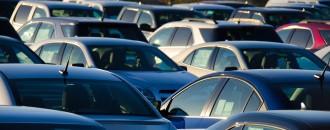.jpg)
GST: Luxury cars, aerated waters, cigarettes subjected to highest tax rate
by Ranjeet Mahtani & Niraj Hande
The most crucial GST Council meeting took place on 18th and 19th May, 2017 in Srinagar, Jammu and Kashmir. The GST Council has finalised seven sets of GST Rules and completed the fitment of most goods and services in various tax brackets in the last two days.
Rules
The GST Council has approved seven sets of GST Rules which pertain to Composition, Tax Invoice Credit & Debit Notes,Input Tax Credit, Payment of Tax, Refund, Registration and Determination of Value of Supply. The Rules pertaining to Transition and Returns were not finalised and shall require further vetting before approval. The next step will be for Governments, State and Central to now notify these.
Rates
The GST Council has finalised the rate schedule for most of the goods and services. The GST rate schedule for goods contains 98 chapters categorized into Nil, 5%, 12%, 18% and 28% tax brackets. Majority of the consumer goods and industrial inputs/capital goods have been classified under the 18% tax bracket, whereas, coal, sugar, tea, coffee (except instant) and edible oil are few of the items classifiable under the 5% tax bracket. The highest tax bracket of 28% mainly consists of luxury goods such as aerated waters, motor cars, etc. The exemption list or nil rated has been kept to a minimum and the same includes fast-moving consumer goods like milk, eggs, vegetables, cereal, etc.
In addition to the above, certain items like motor cars, cigarettes, aerated waters shall also be subject to a (compensation) cess, which shall be chargeable over and above the GST charge per the rate schedule. For example, aerated waters shall be taxable at 28% GST + 12% cess, making the effective tax rate 40%.
The GST Council is scheduled to meet next on 3rd June 2017 to deliberate on rates for gold and precious metals and certain other products.
Continuing the approach followed for goods, services are to be taxable in the tax brackets of 5%, 12%, 18% and 28%. Deviation in rates has been made even for the same industry depending upon the class of service. For example, services like economy air-travel are taxable at 5%, while air travel by any other class will be taxable at the rate of 12%.Similarly, restaurant services (with air-conditioning or license to serve liquor) shall be taxable at 18%, while services by a hotel rated 5 stars shall be taxable at 28% and services by restaurants without air-conditioning or license to sell liquor will be taxable at 12%.
Most of current service tax exemptions like education and healthcare have been continued and will continue under GST regime. A total of 83 services shall be exempt under GST while 18 services have been identified where tax shall be payable on reverse charge.
The recent developments would need to be evaluated as the costs and tax impact will possibly change for business and industries. Due care should be taken to ensure that the benefits accrued on account of the same are passed on so as to also comply with the anti-profiteering provisions.
The heightened pace of activities indicates that 01st July, 2017 is the dateline for GST in India.
.jpg)







 to success.
to success.